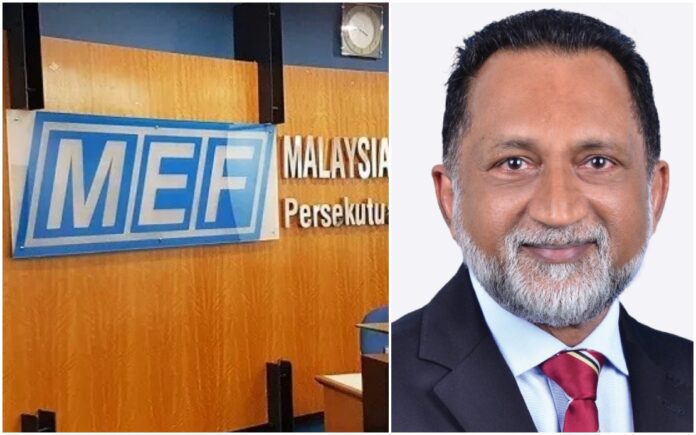KUALA LUMPUR, March 11 — The merger of the Employees Provident Fund (EPF) and the Social Security Organisation (Socso) is not a feasible course of action, said the Malaysian Employers Federation (MEF).
In a statement today, it said that EPF and Socso were established for two different purposes.
‘’The former is established by the Employee Provident Fund 1991, whereas the latter is covered by the Workers Social Security Act 1969 and also the Employment Insurance System Act 2017.
‘’Statutory-wise, the respective laws need to be amended and ironed out legal discrepancies to put this idea into place. Also, the process of amending the laws will consume a lot of time, and there are other pressing matters that the government needs to prioritise,’’ MEF president Datuk Dr Syed Hussain Syed Husman said in a statement.
Recently a suggestion about merging the two organisations to address the needs of Malaysia’s ageing population reemerged in a news story.
Syed Hussain opined that combining these two entities into one engenders a system where both functions intertwine and overlap.
‘’It requires strong engagement from every stakeholder since merging them may have a domino effect on other sectors. What will happen to EPF and Socso workers? Some of their jobs may overlap with one another.
‘’So, will retrenchment be on the table for EPF and Socso workers?’’ he questioned.
Syed Hussain also stressed the vast differences in the number of contributors and employers involved in these two institutions, and merging them into one entity will result in greater financial risk and payout.
‘’In addition, EPF contribution is compulsory for local employees, while Socso is mandatory for both local and foreign employees.
‘’EPF focuses on savings and retirement funding while Socso, on the other hand, is responsible for an extensive role including accidents and injury, loss of employment, jobseekers, placements as well as upskilling and reskilling,’’ he said.
Syed Hussain said integrating retirement, savings, pension, and social protection mechanisms does not solve the problem of diminishing the value of pensions and savings through the years.
He added that MEF viewed that it would be more important for the government to identify an efficient and effective mechanism that complies with standardised procedures in order to safeguard the interest of investing members, for example, effective fund investment management and providing contributors access to regularly monitor the performance of invested funds vis-a-vis payout.
















